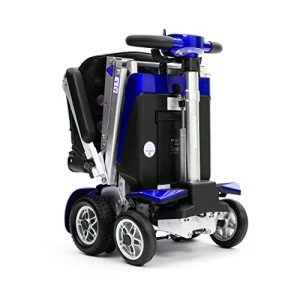Mobility Scooters: A Comprehensive Guide
Mobility scooters have ended up being a vital mode of transportation for many individuals dealing with mobility challenges. This article checks out the numerous aspects of mobility scooters, including their types, advantages, functions, and a guide for prospective purchasers.
Comprehending Mobility Scooters
Mobility scooters are electrically powered devices created for individuals with minimal mobility. They provide a way of transportation for people who might have problem strolling however still wish to retain their self-reliance. They can be found in numerous styles and functions to deal with a large variety of requirements.
Kinds Of Mobility Scooters
Mobility scooters can typically be classified into 3 main types:
| Type | Description | Best For |
|---|---|---|
| Compact Scooters | These are small and lightweight, perfect for inside your home and short trips. | Users with limited storage area or those who take a trip typically. |
| Mid-size Scooters | A balance between mobility and stability, ideal for both indoor and outside usage. | Those who need to cover a range of surfaces. |
| Heavy-duty Scooters | Big and robust, designed for rugged outside usage and heavier individuals. | Users requiring extra weight capability or going off-road. |
Key Features of Mobility Scooters
The option of mobility scooter typically depends on the functions that line up with private needs. Here are a few of the crucial features to think about:
- Weight Capacity: Mobility scooters come with different weight limits. My Mobility Scooters is important to select a scooter that can effectively support the user's weight.
- Variety: The distance a scooter can travel on a single charge varies. Depending on user requirements, one may select scooters with a series of up to 40 miles.
- Speed: Most mobility scooters can reach speeds between 4 to 8 mph. Consider what speed is comfortable and safe for the designated environment.
- Turning Radius: A compact turning radius is essential for indoor use, allowing for much easier navigation in tight areas.
- Battery Type: The type of batteries used can affect the scooter's efficiency. Lead-acid and lithium-ion batteries are the most common.
Advantages of Using Mobility Scooters
The advantages of mobility scooters extend beyond just transport. Some essential advantages include:
- Independence: Users can browse their environment without counting on caregivers, promoting independence and confidence.
- Health Benefits: Using a scooter can encourage outdoor activity, resulting in physical and mental health improvements by minimizing sensations of isolation.
- Convenience: Scooters can easily be run in different environments, whether indoors, in mall, or outdoors.
Crucial Considerations When Buying a Mobility Scooter
When buying a mobility scooter, a number of considerations can help ensure that you pick the ideal design:
Assess Individual Needs:
- Mobility level: Consider how much support the individual will need.
- Range of use: Determine where the scooter will mainly be utilized (inside your home, outdoors, on rough terrains, etc).
Test Drive:
- Always test drive a number of models to find a suitable fit. Take note of convenience, ease of steering, and the scooter's responsiveness.
Evaluation Safety Features:
- Look for scooters with adequate safety features like lights, signs, and anti-tip styles.
Examine Warranty and Service Options:
- A reliable guarantee and available service options are essential for long-term use.
FAQs about Mobility Scooters
1. How fast do mobility scooters go?Mobility scooters usually have speeds ranging from 4 to 8 mph, with the majority of developed for security rather than high-speed travel. 2. Exist weight constraints on mobility scooters?Yes, mobility
scooters feature specific weight limitations, frequently varying from
250 pounds to over 500 pounds, depending upon the design. 3. Can mobility scooters be utilized indoors?Certain models, especially compact scooters, are specifically developed for
indoor usage and are easier to steer in tight spaces. 4. How often do the batteries require to be replaced?Battery life can vary based upon use, however typically, with correct care, batteries may last in between 1 to 3 years before requiring replacement
. 5. Are mobility scooters covered by insurance?Coverage can differ, however some insurance plans, consisting of Medicare and Medicaid, may cover part of the expense. It's recommended to check with specific insurance coverage providers. Mobility scooters serve as a
valuable tool for many people, enabling them to keep
their freedom and independence. By comprehending the different types and features of mobility scooters, individuals can make informed choices customized to their specific needs.
Whether used for errands, socializing, or leisurely activities, mobility scooters can enhance the lifestyle for those with mobility restrictions. Buying a mobility scooter is a choice that can substantially affect an individual's daily life. Therefore, individuals should thoroughly assess their alternatives and pick a design that best lines up with their way of life and mobility requirements
.

